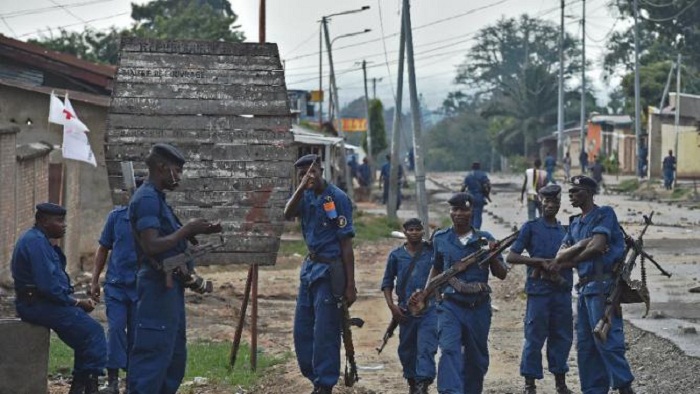US orders all `non-emergency` personnel to leave Burundi as violence flares

In a travel warning the State Department said the US Embassy could only offer limited emergency services to its citizens in Burundi.
Political violence continues throughout the country following contested elections, an attempted coup and the controversy over President Pierre Nkurunziza controversially standing for - and winning - a third term in office, the warning said.
Armed groups frequently stage gunfire and grenade attacks, but not usually at foreigners, the Department added.
“Demonstrations, gatherings and even sporting events that are intended to be peaceful can turn violent without advance warning,” it added.
Belgium, the country`s former colonial power, advised its citizens last month that they should leave the Central African nation, following the deaths of scores of government and opposition supporters.
‘This is by far the most serious incident`
More than 150 armed men attacked three army installations on Friday, leaving 79 of them dead, army spokesperson Col. Gaspard Baratuza said on Saturday. Eight security personnel, four from the police and four from the army, also died in the raid, with 21 security officials wounded. Forty-five members of the unidentified group, he added, were arrested by government forces.
In the hours following the attacks, residents reported seeing army officers moving from door-to-door in some districts and dragging people from their homes and shooting them dead.
At least 28 bodies were found in the streets, many had been shot in the back of the head and had their hands tied behind their backs.
US rights group Human Rights Watch called Sunday for a “serious and independent” enquiry to be conducted after the latest round of violence.
“This is by far the most serious incident, with the highest number of victims, since the start of the crisis in April,” Carina Tertsakian, a senior researcher at Human Rights Watch said of Friday`s violence.
The government reportedly cleared the bodies from the roads, burying them in mass graves. Critics say the move was to prevent further investigation into the deaths and to conceal the exact number of those who had been shot.
Deaths and refugees
More than 300 people have been killed, with around 215,000 fleeing the country since April when Nkurunziza announced he would be standing for a third term in office. He won the election in July.
Locals, along with the international community are opposed to his re-election as unconstitutional and in violation of a standing peace treaty. The accord brought to an end a bloody civil war in which 300,000 people were killed between 1993 and 2006.
Figures released by the United Nations before Friday`s violence showed at least 240 people had been killed and more than 200,000 had fled abroad since May, raising fears of another civil war.
The United Nations Security Council which met on Friday at the request of France to discuss the situation in Burundi said that sending UN peacekeepers there remained an option, but stressed the need for urgent political dialogue.















































